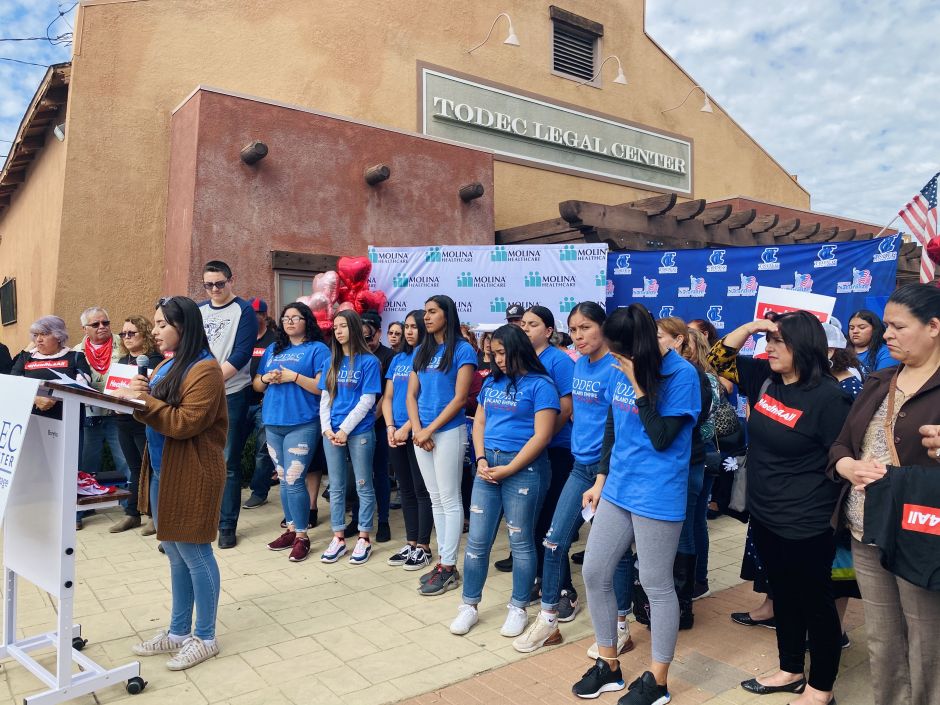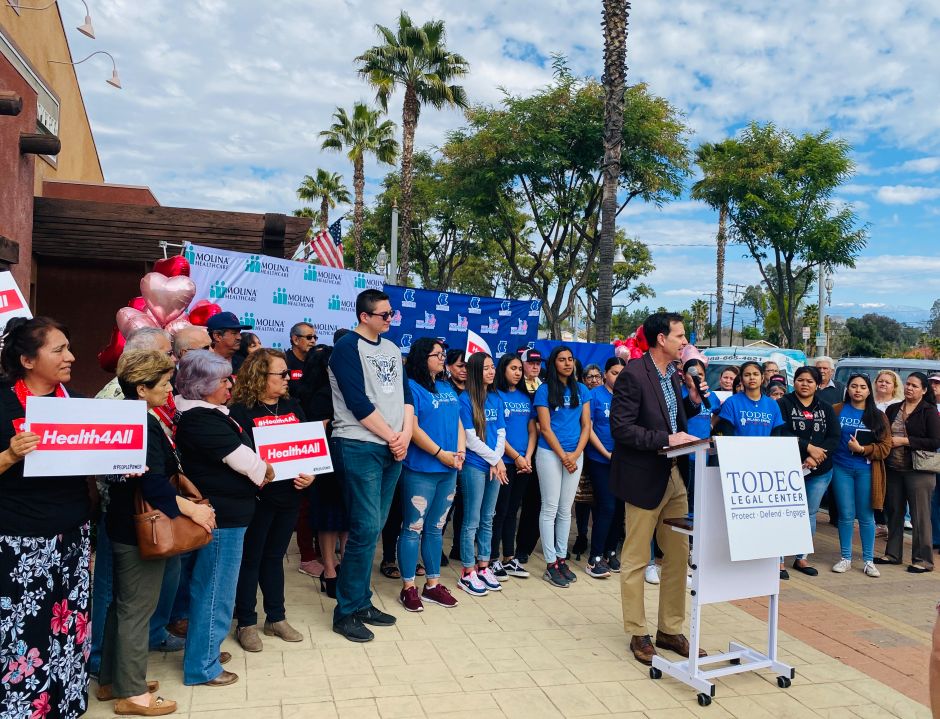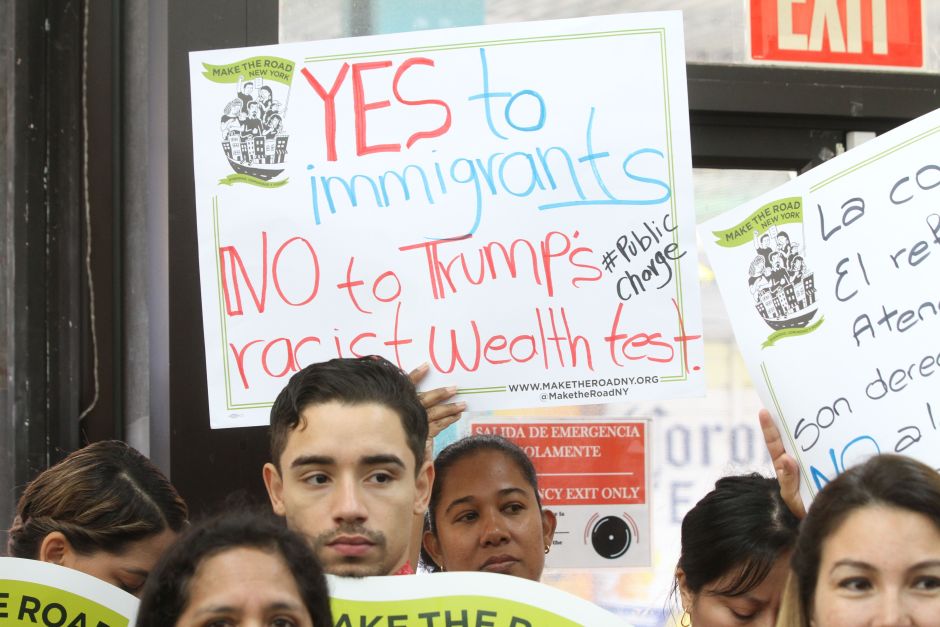This measure will take effect on February 24; experts recommend seeking legal help in case of doubt.
Veronica, an undocumented young woman diagnosed with leukemia last year, breathed easy when she learned that California had passed a new law that allows young people to receive health coverage through the state's Medi-Cal program.
However, when she learned of the new rule on public charge that authorizes the government to deny residence to those who consider a burden on the nation, she became very nervous and stressed.
“Not having a legal status is in itself traumatic, but not having medical coverage for my condition caused my fear to grow. My parents immediately went to the TODEC Legal Center for legal assistance for our situation, ”Verónica said. "When they educated us on the subject and told us that the expansion of Medi-Cal for young adults was not a problem for the new rule because they were state funds, I felt relieved."
In January of this year, he requested the Medi-Cal under the Law Health for All Young People. “I have faith that my life will continue as long as I receive medical care for my condition,” external.
The new public charge rule takes effect on Monday, February 24, So it is important to be prepared and informed about the use of public programs that does not make undocumented immigrants a burden.
"Undocumented immigrants can receive all programs that are not federal and are funded by the State”, Says Luz Gallegos, director of community programs at the TODEC Legal Center, a non-profit immigrant advocacy organization based in the Coachella Valley, San Bernardino County, in the Inland-Empire region.

He added that "the expansion of Medi-Cal for young people does not count towards the public charge rule, but we always recommend seeing a legal advisor because each case is different."
Beginning January 1, 2020, all Californians under 26 who are eligible based on income can register for free to the full-coverage Medi-Cal program, regardless of immigration status.
In California, Medi-Cal is a medical health coverage program for low-income people.
Gallegos says they are worried because many immigrants are not insuring or their health coverage is abandoned for fear of being considered a public charge when the opportunity to apply for residency arises. "There is a lot of confusion and misinformation."
People should know, he details, that immigration officials take into account all circumstances to determine if someone may be a public charge in the future.
“They consider the age, health, income, assets, resources, education, skills, the family they must support; and positive factors such as employment or health insurance can be used to counteract negative factors such as the use of certain benefits or a health problem, ”says Gallegos.
The TODEC Legal Center distributed a pamphlet on public charge in which they report that the majority of immigrants will not be affected.
"It does not affect refugees, asylum seekers, survivors of trafficking, domestic violence and other immigrants, humanitarian immigrants”, They indicate.

The pamphlet also highlights that many public programs are not considered public charges for the Department of Homeland Security (DHS). Some examples are the food stamps of the Special Supplemental Nutrition program for Women, Infants and Children (WIC), the children's health insurance program (CHIP), school lunches, food banks, shelters, care assistance of children and medical care financed with local and state resources.
Cynthia Buiza, director of the California Immigrant Policy Center says that the best weapon against intimidation tactics is to empower immigrant communities with facts and resources.
“We encourage families to seek legal advice to make the best decisions for their families. Protecting access to safety net programs is essential to ensure that all families living in our state have the opportunity to succeed, ”he said.









